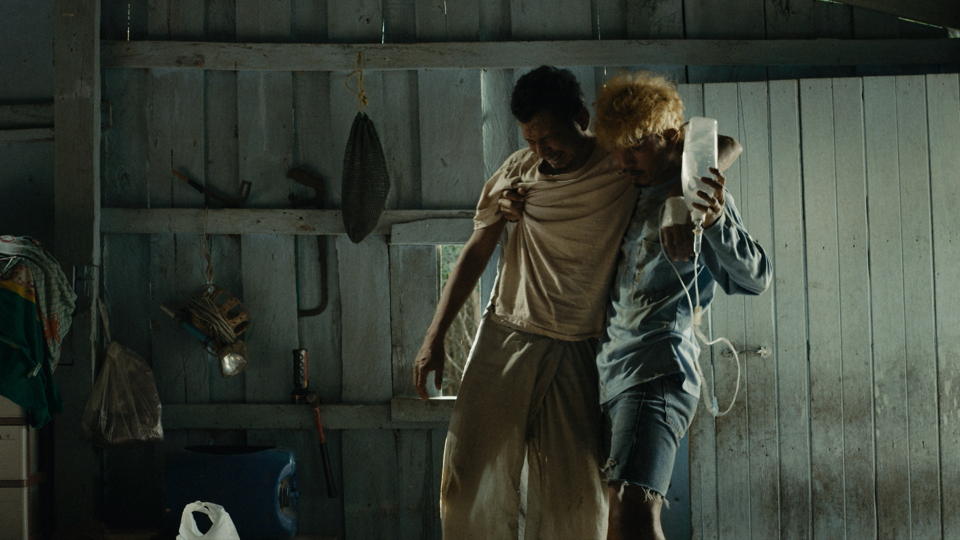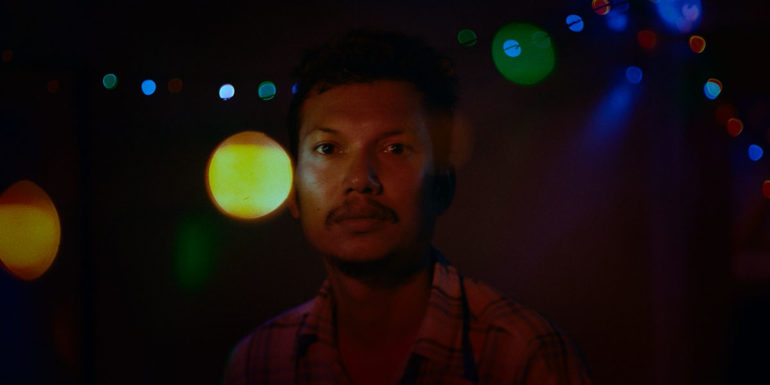Manta Ray is a Thai film from director Phuttiphong Aroonpheng. This is Aroonpheng’s feature film debut and stars Aphisit Hama, Wanlop Rungkamjad, and Rasmee Wayrana.
Manta Ray follows a man who is found injured and alone in a forest by a fisherman (Rungkamjad). After being nursed back to health the fisherman realises that the stranger is a mute and so names him Thongchai (Hama). The two build a warm and trusting relationship until one day the fisherman does not return from a day of fishing. From there the film takes a twisted turn but to go into that would be to go into spoiler country.
The film seems to set up the fisherman as the protagonist in the beginning. We see his daily life, how he’s seen among the village and how when he takes in and takes care of Thongchai his life changes for the better. However, after the first act is over it becomes quite clear that Thongchai is the focal point of the film and though he says nothing in the film we learn so much about during the course of the story.
I suppose the reason I came to this conclusion is because Thongchai is a blank slate. He doesn’t speak, he’s being taught by the fisherman about the world and he is seemingly built as a person from the ground up from where we find him at the start of the film. He’s bloody, covered in dirt and has to be cleaned. It feels like a birth in a fashion.
The fisherman comes across as a caring parent – taking care of him, changing his lifestyle to suit that of someone who has to worry about another and he even takes him to a fairground as a way to reward Thongchai. Their relationship is quite charming and you feel for Thongchai when the fisherman disappears. There is even a scene where Thongchai is waiting by the bay for an extended period of time for his friend to return and it’s heartbreaking when he eventually has to leave.

The imagery and score of Manta Ray are quite psychedelic at times giving several moments in the film a kind of dreamlike element. This element adds to the shifting of the places in the world with Thongchai and the fisherman especially going into the second and third act of the film as Thongchai has to deal with the fisherman’s disappearance. A particular highlight is the forest from which Thongchai was found. The trees are laid out like the bones of a human. It’s fascinating.
In my opinion, it cannot be stated enough how saddening the final act of Manta Ray is. The performances are moving, especially from Aphisit Hama. He’s a diminutive powerhouse delivering so much with so little. The one key element of sound he makes in the entire film is a whistle taught to him by the fisherman and how Hama uses it is just mesmerising.
As the film builds to its climax this sound is utilised by Thongchai and it has a palpable tension to it that feels both aggressive and melancholy all at the same time. As I watched this unfold I couldn’t take it and when it finally ended I felt a huge sense of relief wash over me. It was quite the experience.
Unfortunately with it comes the end, as events in a sense come full circle. Manta Ray is a beautiful story with tragedy its constant companion and I highly recommend it.


